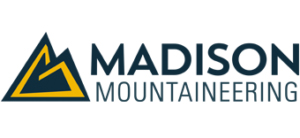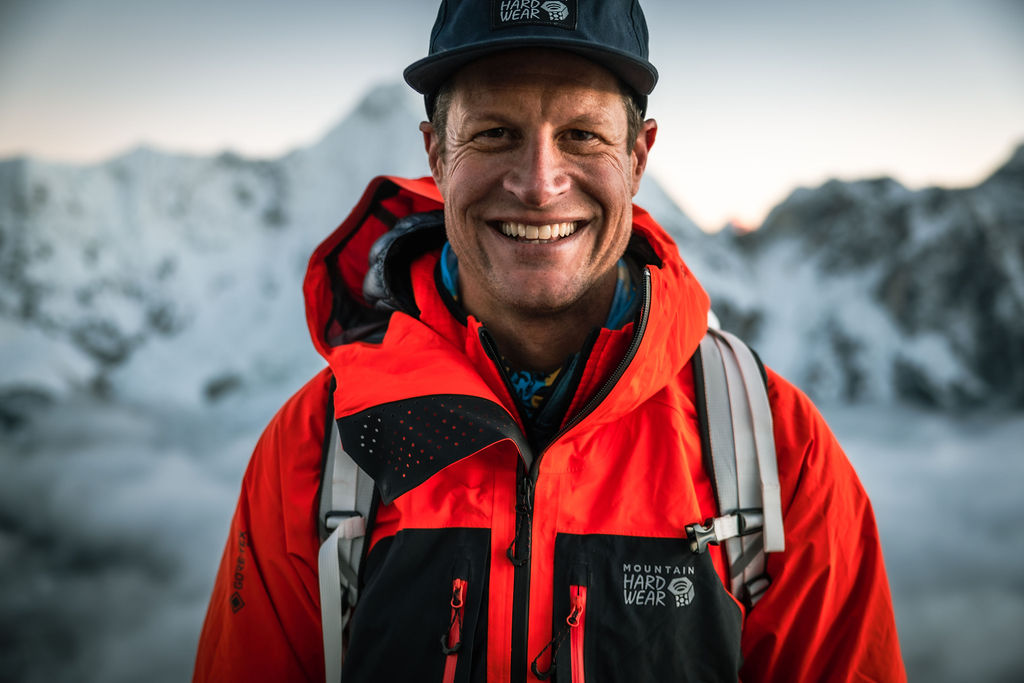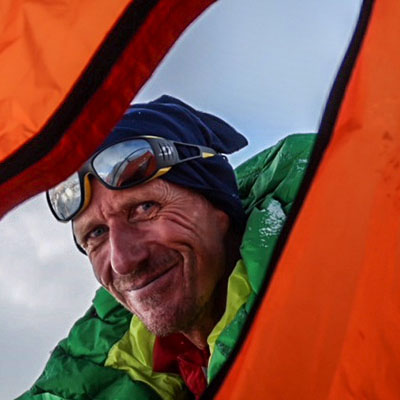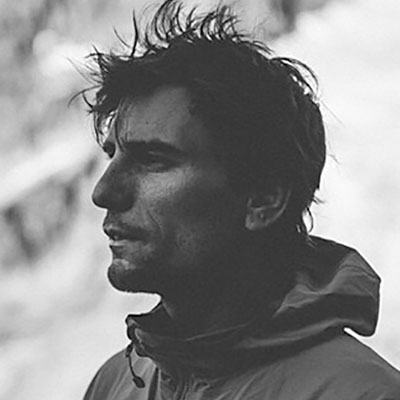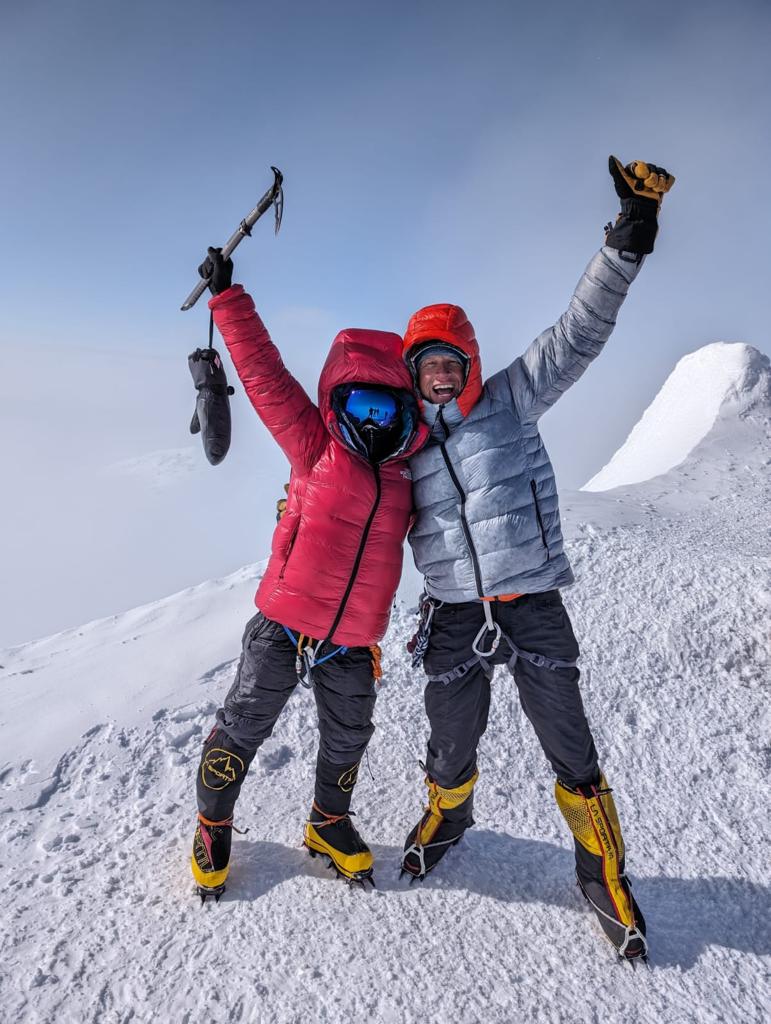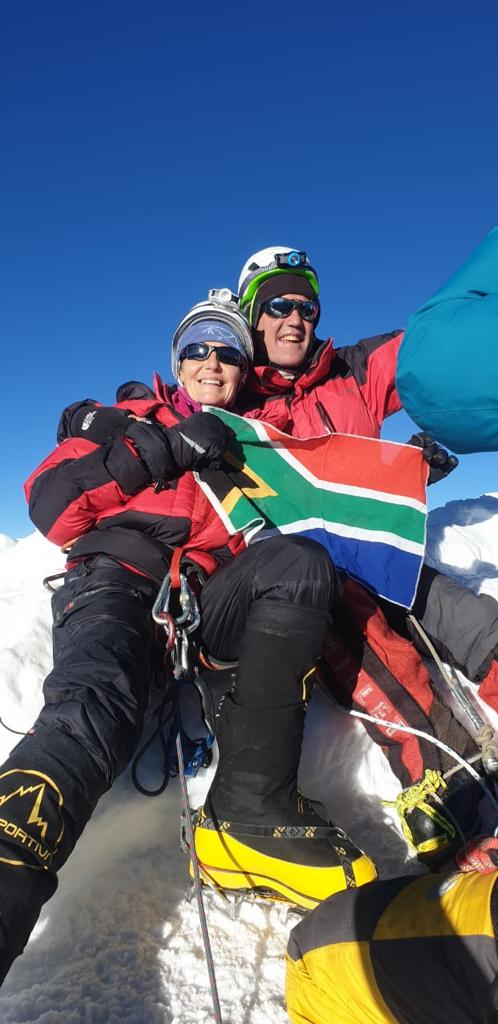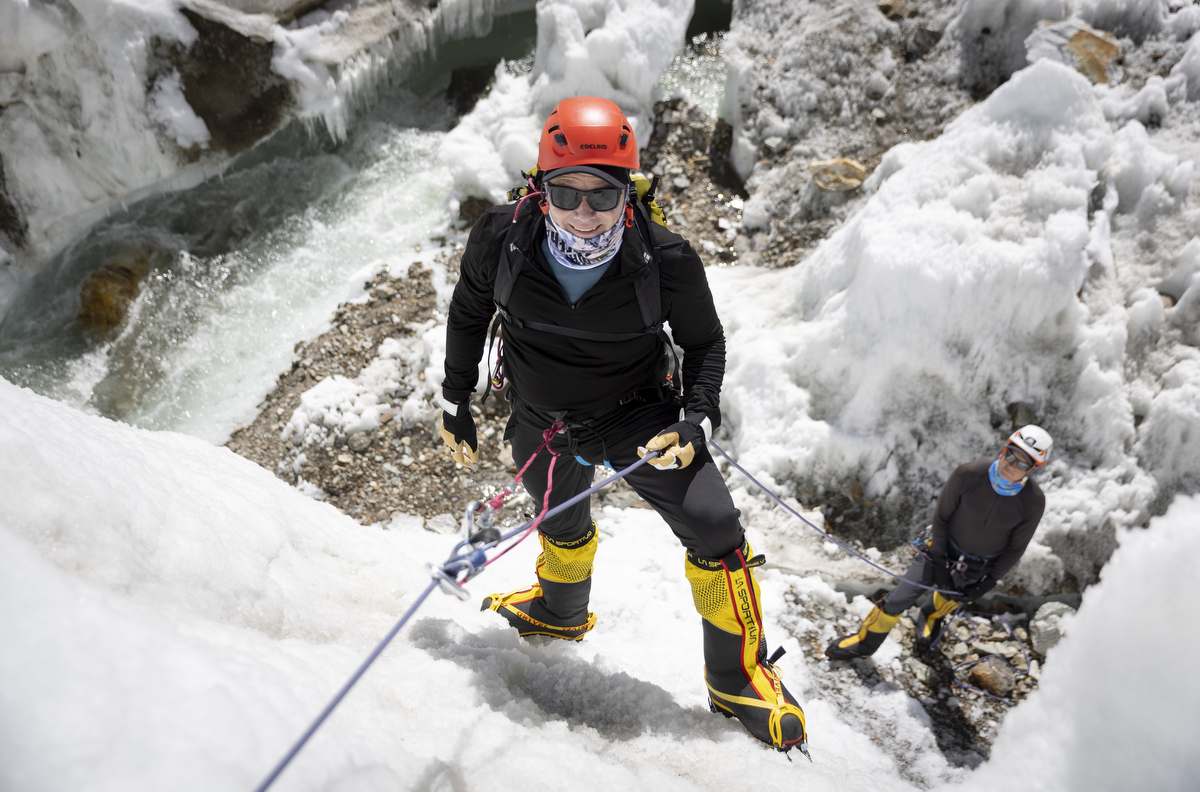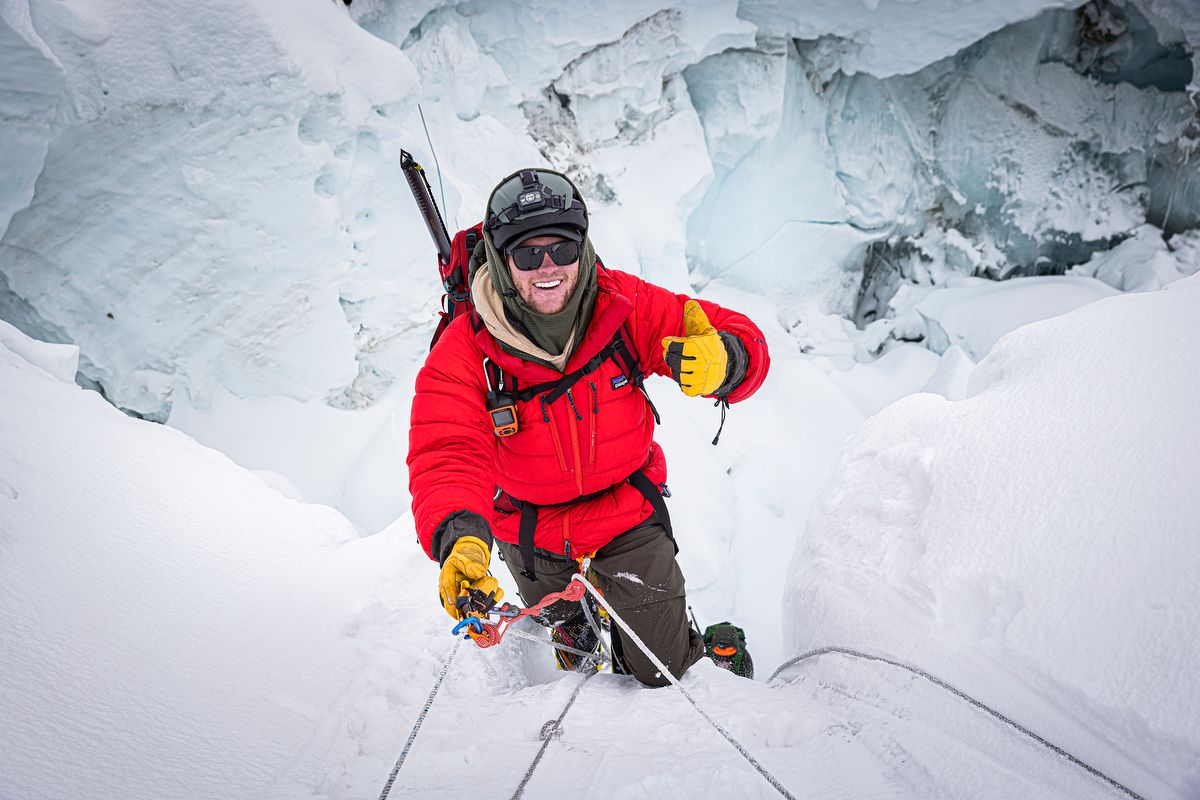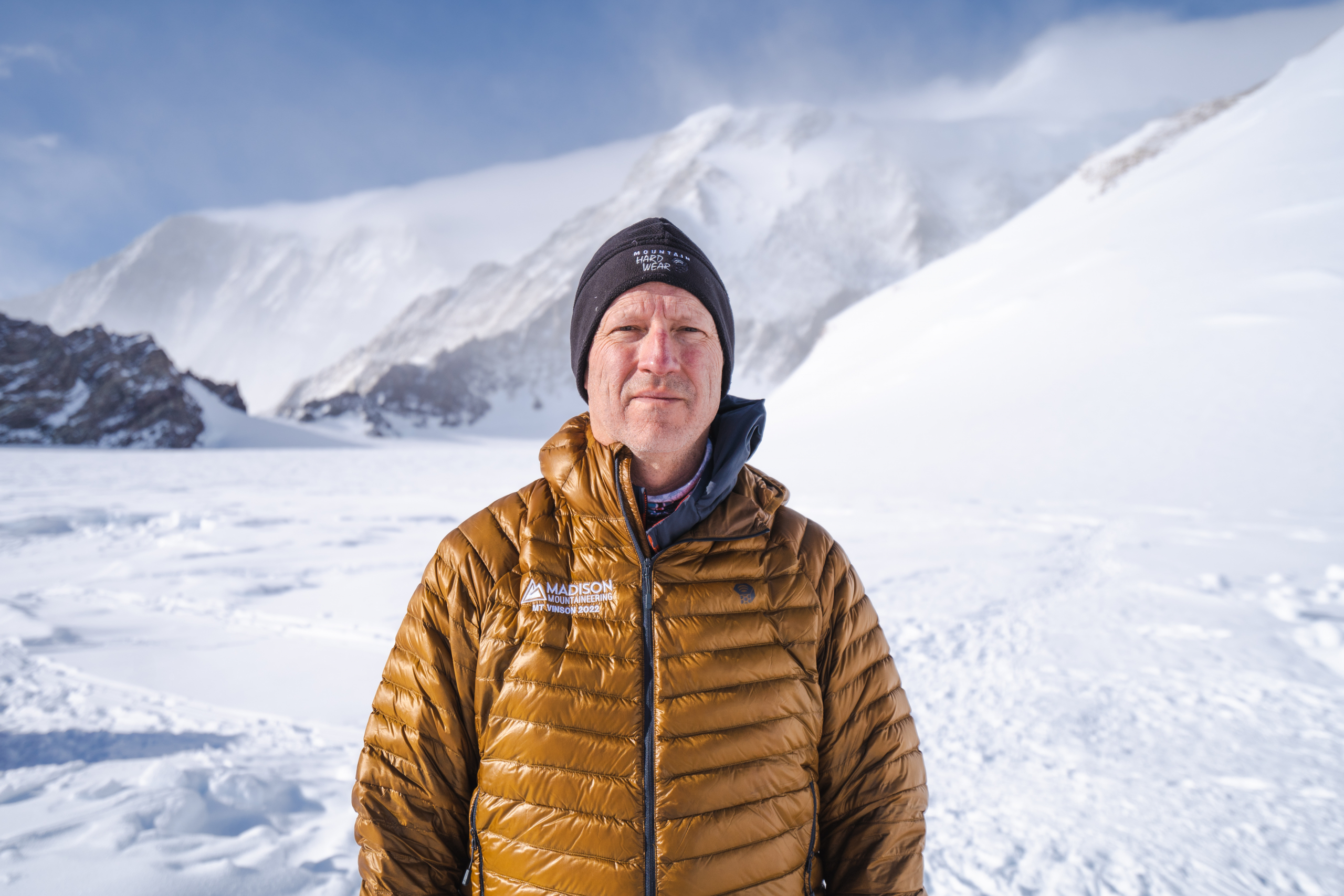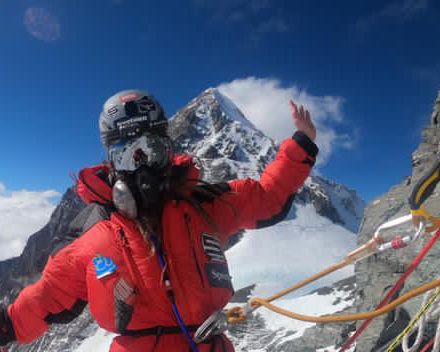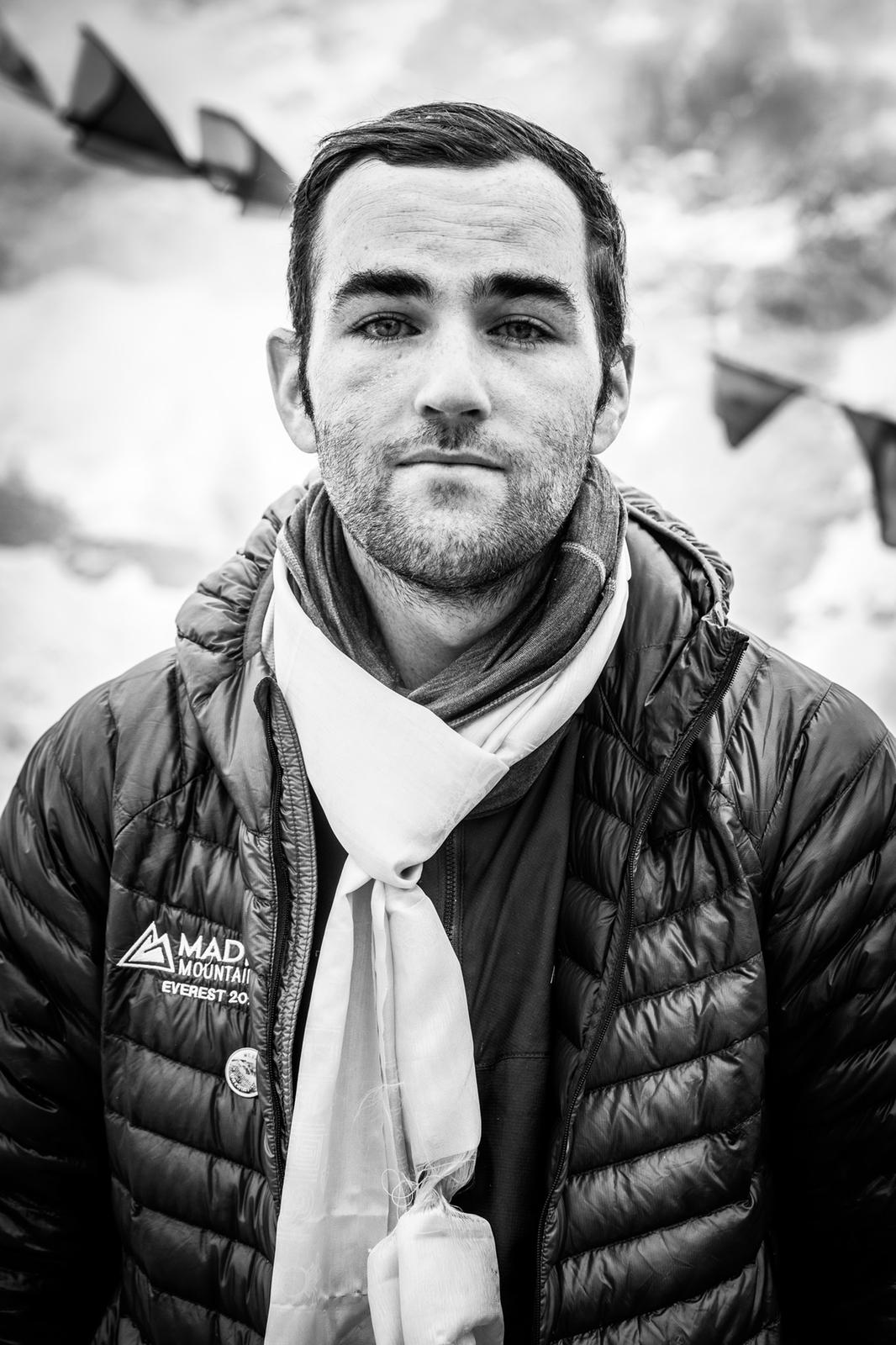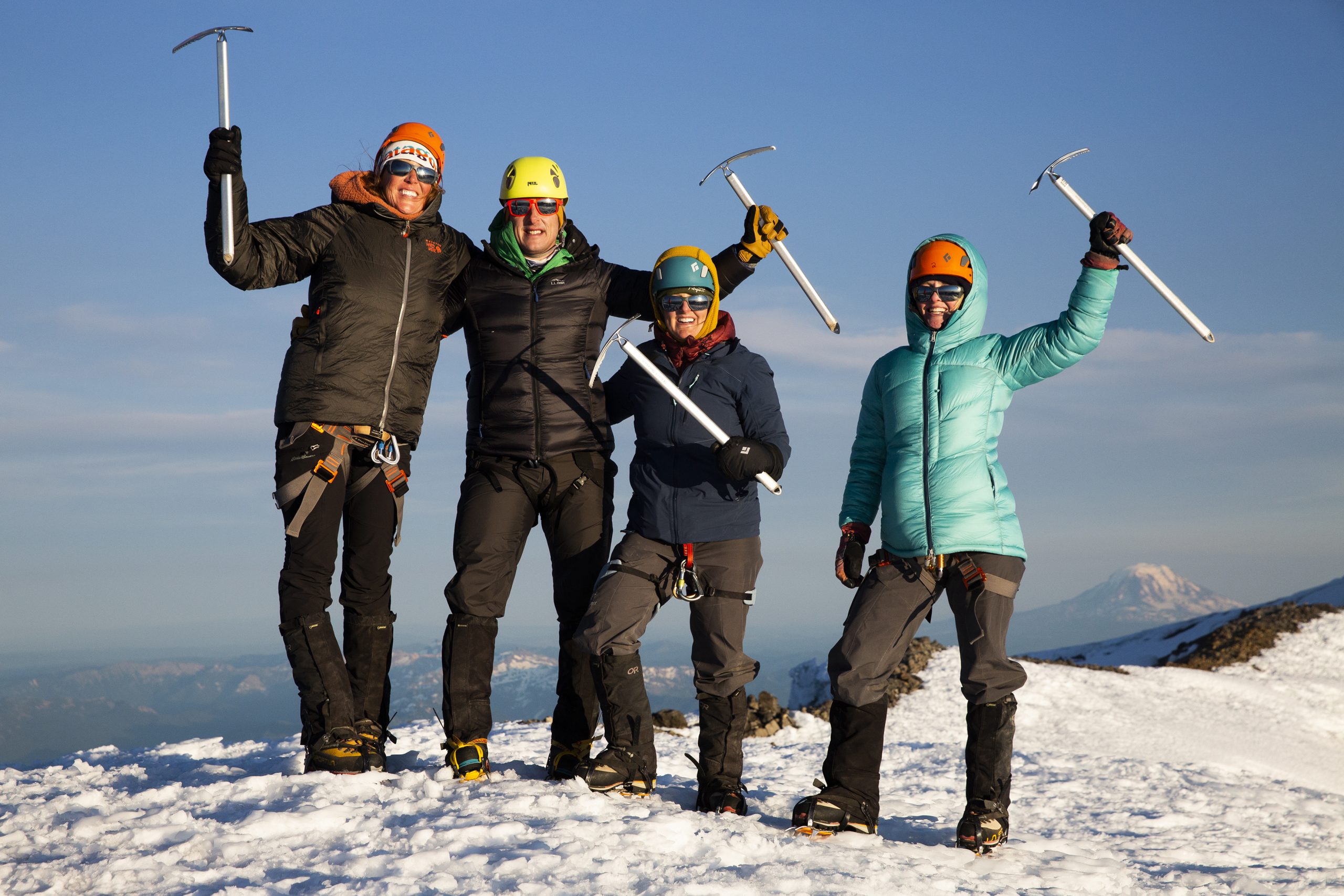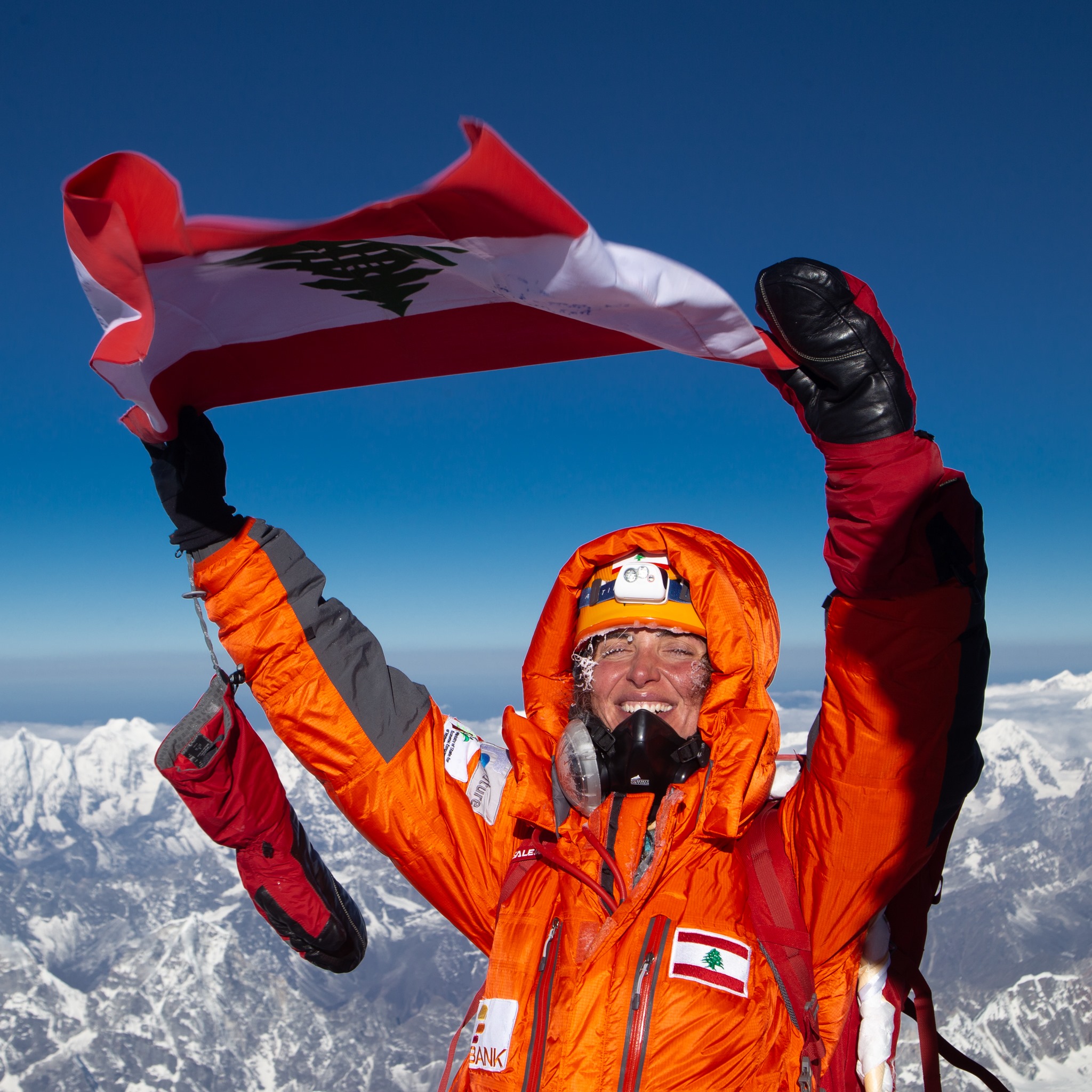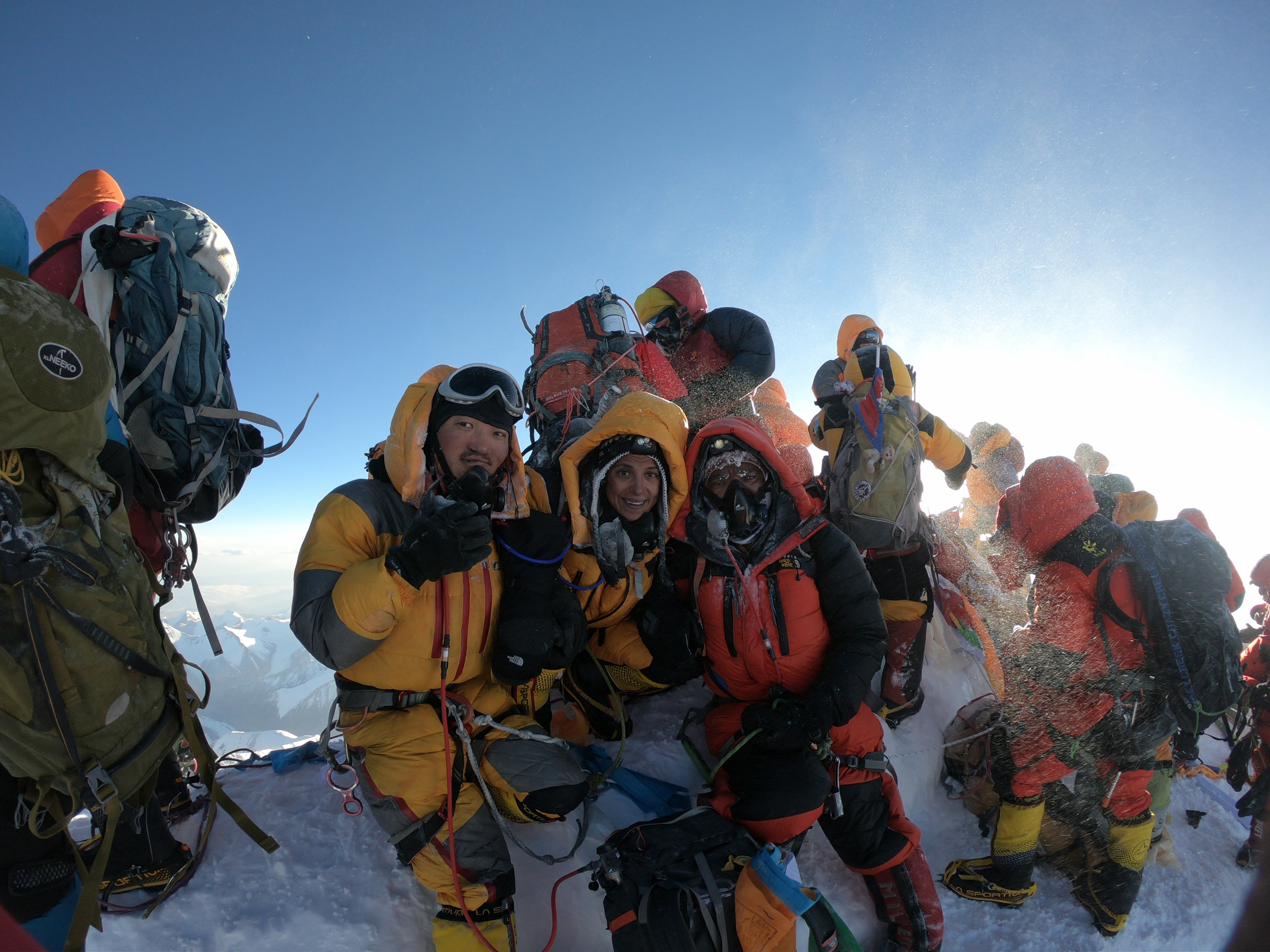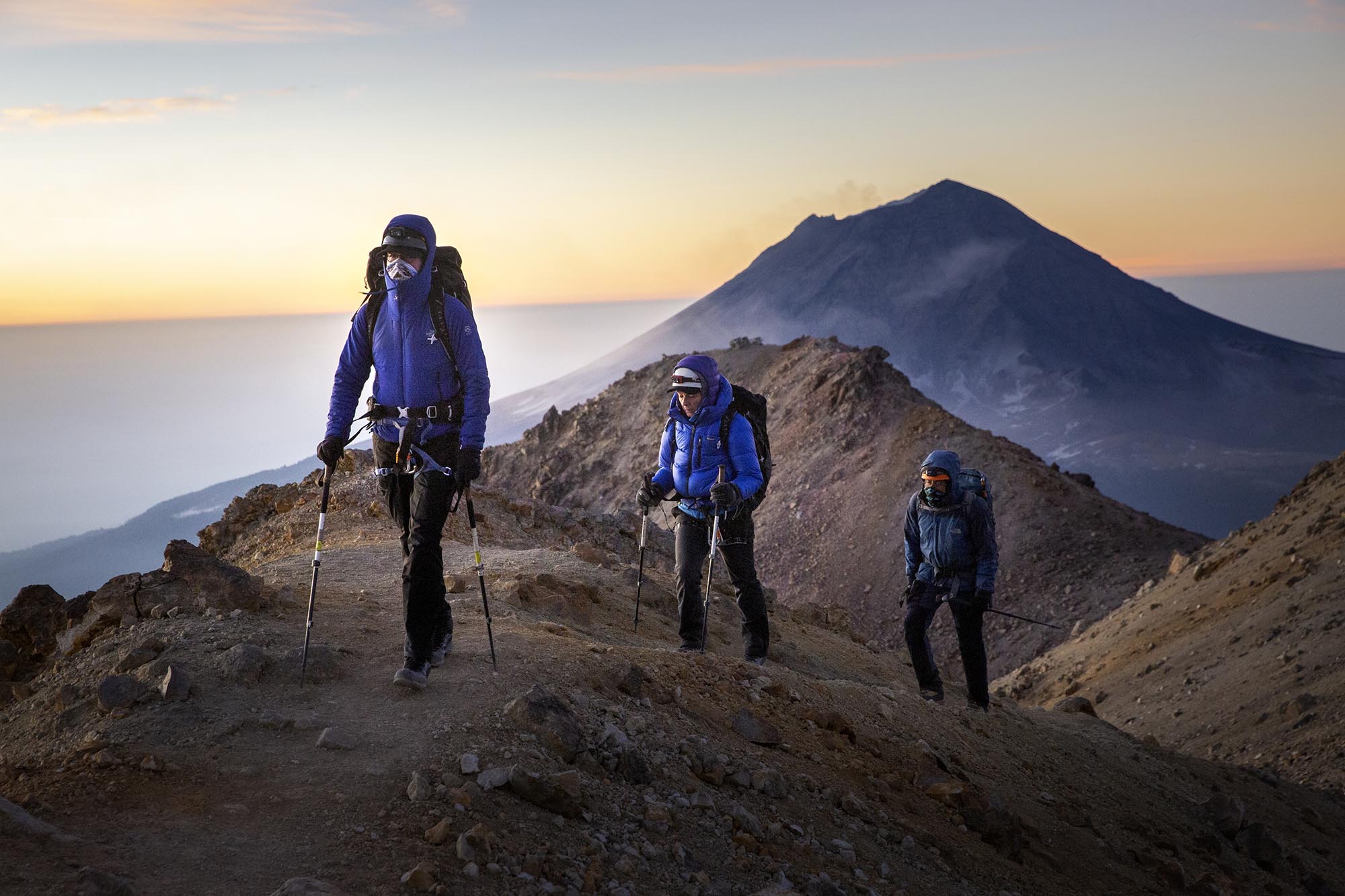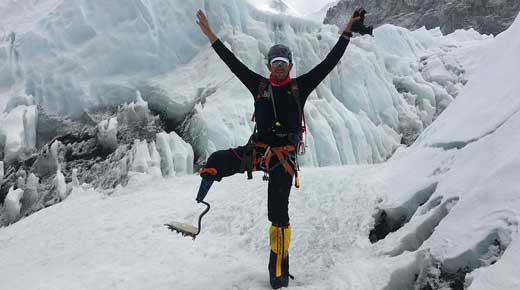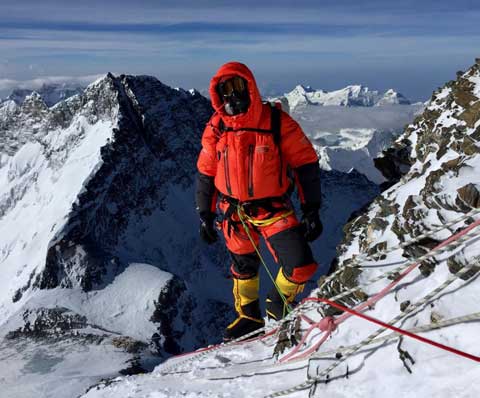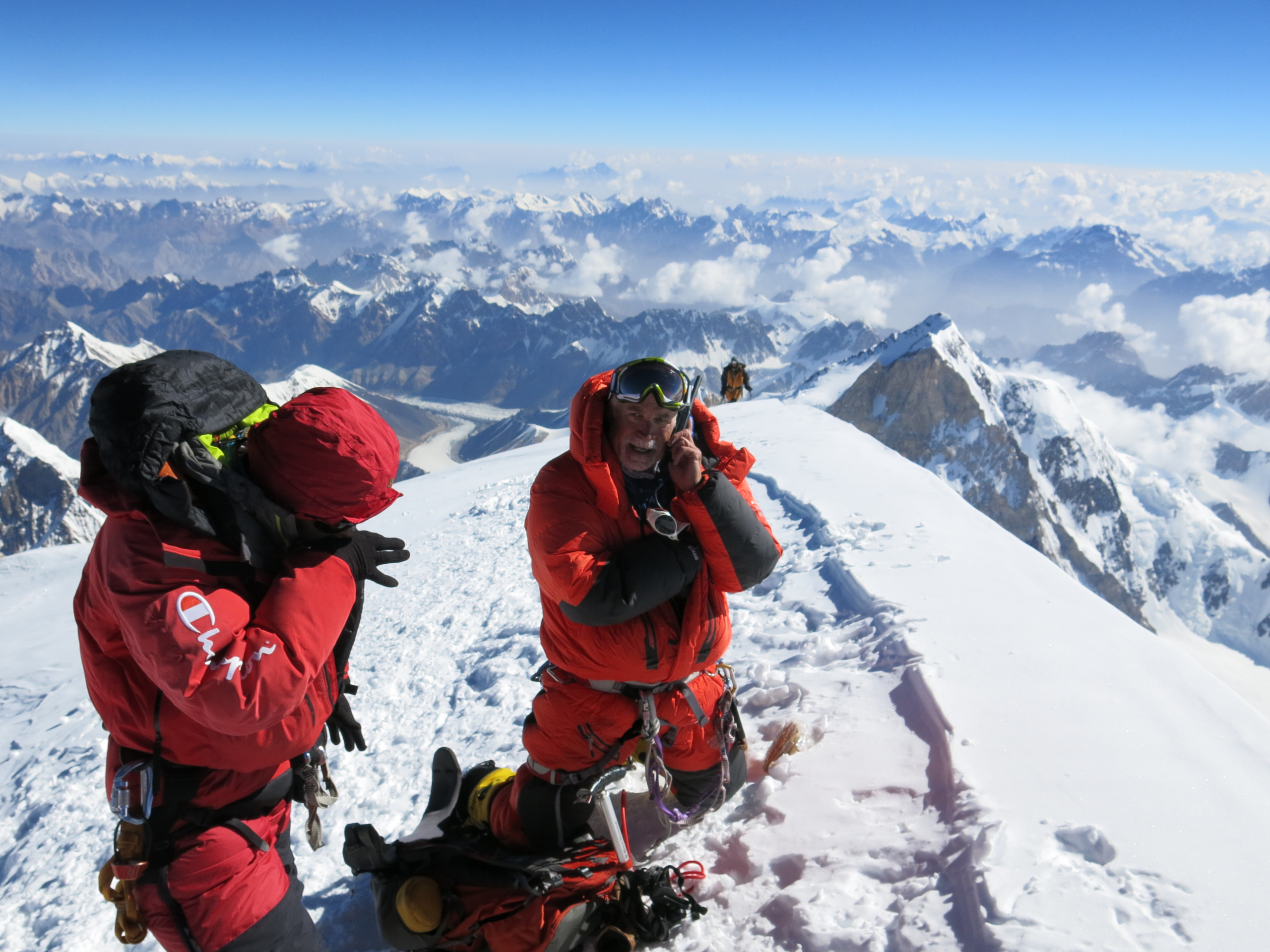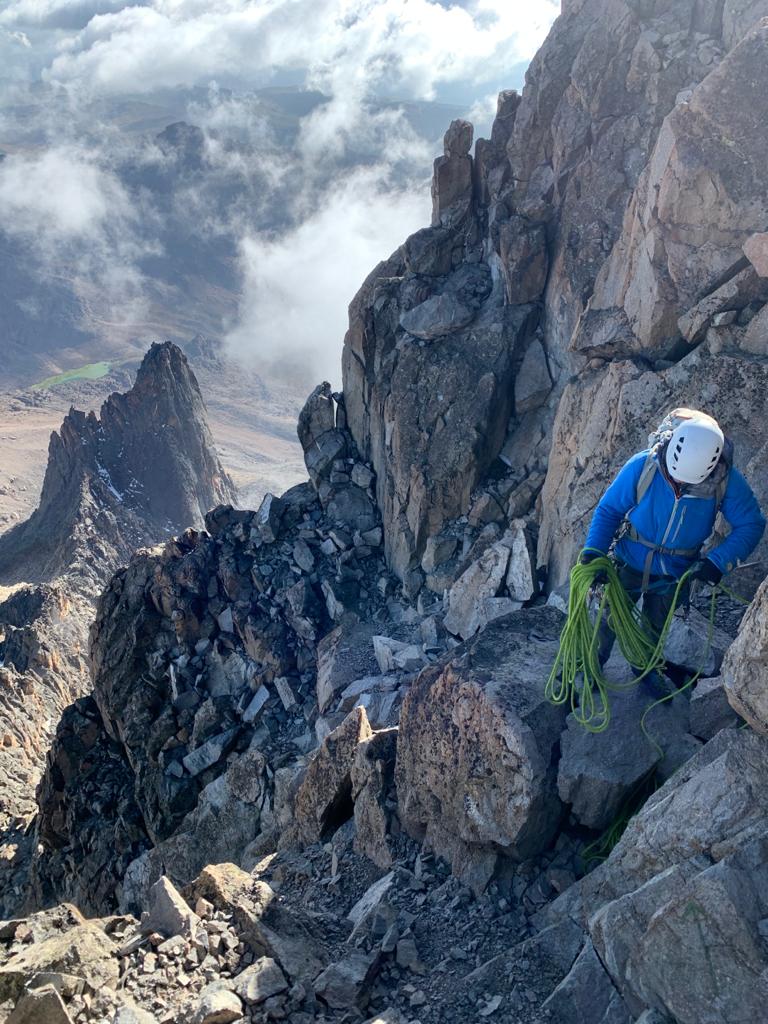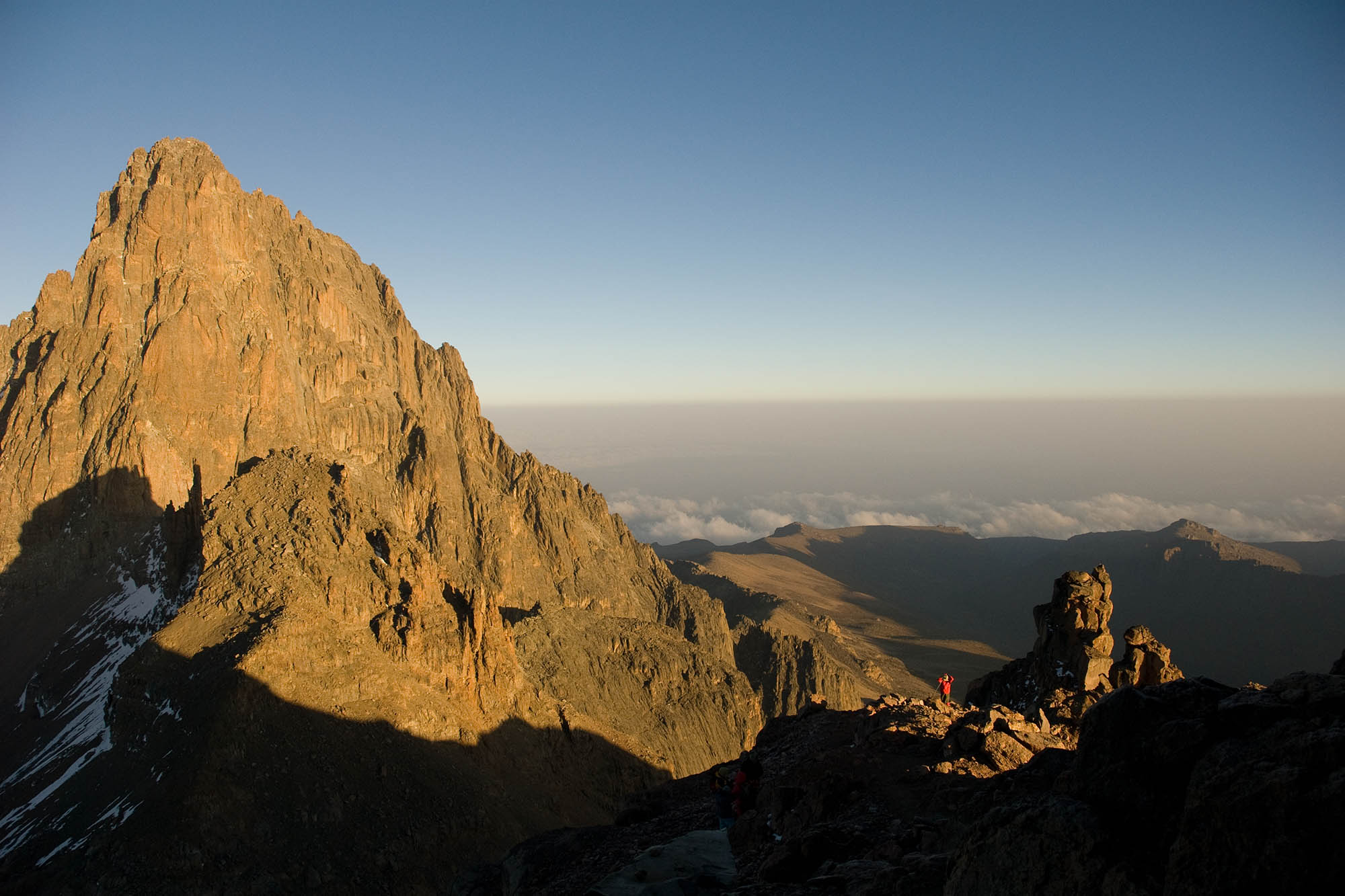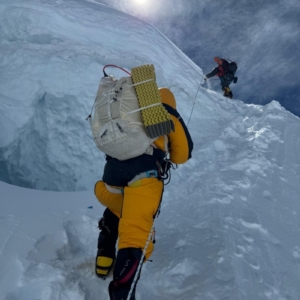The Normal route to Nelion is attempted via the southern side of Mt Kenya and is best accessed from the Austrian hut. After crossing the Lewis Glacier with headlamps on, you scramble up the scree to the base of the climb. Generally, you have completed the first two pitches before first light. Once the sun does come out, the climbing becomes even more enjoyable. As you work through the pitches, you will pass famous features such as "One O'clock Gully," "The Amphitheatre," and "De Graf's Variation," which will present some easy and some challenging climbing. "Bailey's Bivy," which is a disused hut, can be considered the half-way point on this spectacular route. The summit of Nelion is generally reached in 6-8 hours. Howell Hut, on the summit of Nelion, will be used for a brief rest before crossing over to Batian via the "Gates of Mist," which involves dropping some 35m off Nelion and climbing a further 50m to the summit. The estimated time to do this crossing and return to Nelion is 3-4 hours and is dependent on ice levels within the "Gates of Mist."
It is this route on to Nelion that saw Eric Shipton complete the first ascent to the summit of Mt Kenya in 1929 with PW Harris prior to him being part of a reconnaissance team on Mt Everest. The route has many other famous stories from famous faces of the past, which you will have to discuss with your guide during the unforgettable climb.
- Itinerary
- Dates and Costs
- Gear List
- Why Madison Mountaineering?
Day 1: ARRIVE IN NAIROBI. Your driver, identifiable by a Madison Mountaineering sign, will pick you up from Nairobi’s Jomo Kenyatta International Airport (NBO) airport and transfer you to your hotel. On arrival, the hotel staff will help you get settled in and relax after your flight. Later on, your guide and the climb manager will brief you thoroughly on what to expect while on the mountain and will also conduct a gear check.
Day 2: NAIROBI TO CHOGORIA BANDAS (2530m). After an early breakfast, you will meet your driver and guide who will take you to the Chogoria Bandas. The first day’s walk takes you up through the forest for about two hours where you check into the park at the Kenya Wildlife Service entrance and then walk another hour to the camp site. If it is a clear afternoon, you can generally get a good sense of the landscape from this point, where the Afro-alpine Forest ends and the moorland begins. The afternoon is a good opportunity to walk around the area and acclimatize. Trekking time: 3 hours
Day 3: CHOGORIA BANDAS TO LAKE ELLIS (3480m). The second day’s trek starts with spectacular views of the rolling hills ahead and perhaps even a glimpse of the snow-capped peaks of Batian (5199m) and Nelion (5188m) high above. This is a relatively short hike, and you will in camp a little earlier than the previous day, which gives you a great chance to sit back and relax after lunch and simply enjoy the views around Lake Ellis. We go by the general rule of thumb to “climb high and sleep low” to allow for better acclimatization. An evening walk up the nearby Mugi Hill can be a wonderful way to end the day, and will hopefully make your ascent a lot easier as well. You can even try your hand at a spot of fly-fishing in the lake. Trekking time: 4 hours
Day 4: LAKE ELLIS TO LAKE MICHAELSON (4290m). This day is a beautiful walk that takes you up along the ridge overlooking the Gorges Valley and later in the day Lake Michelson comes in to view. We will break for lunch overlooking the lake with a spectacular view, and then continue on a gentle traverse and descend to Lake Michaelson camp. You can rest in the afternoon or go for a wander around the lake. Trekking time: 7 hours
Day 5: LAKE MICHAELSON TO SIMBA TARN (4620m). ). Breakfast will be served around 08:30am since today’s hike is rather short. Climbing away from the beautiful Lake Michaelson ascend into the alpine zone, a world of rock and ice as we go up towards the main peaks, leaving behind the giant lobelias and groundsels and onto glacial moraine. A last short, sharp scree slope takes us to Simba Tarn (4620m), where we overnight. This will be a cold night depending on the weather that day, good and warm clothes are worthwhile, warm sleeping bags counts for this night as you are just few meters to the peak. Dinner and overnight in the camp. Trekking time: 3 hours
Day 6: SIMBA TARN TO KAMI HUT (4790m) VIA POINT LENANA (4985m/16,355ft). An early departure at 5.30am for a sunrise summit is the best way to experience this climb, and enjoy the expansive views of the mountainside, valleys, and country beyond – even the summit of Kilimanjaro – whilst sipping a nice warm drink. The descent takes you down to Austrian Hut where the preparations will begin. This will involve looking at equipment and packing systems. With some spare time during the day, the opportunity can be taken to tour the Lewis Glacier and some rope work skill ready for the early start the next morning. Trekking time: 4 hours
Day 7: AUSTRIAN HUT TO NELION (5,188m) & BATIAN (5,199m) VIA THE “SOUTH RIDGE” TO NELION. DESCEND TO MACKINDERS CAMP. A very early start to cross the Lewis Glacier is required to get to the start of the technical ascent for first light. The 18 pitches of technical climbing will see the group on the summit of Nelion in 6 – 7 hours. After a short rest in Howell Hut, you will descend into the “Gates of Mist” and climb to Batian. A cut off time for this crossing normally selected by the guide for safety as it is important to not descend the climb in the dark, the crossing to Batian can take 3 – 4 hours. Final abseil descent of the South Ridge and trek out to Mackinder’s camp.
Day 8: MACKINDER’S CAMP TO MET STATION (3050m). The descent from Mackinder’s camp to the Met station takes between 5 – 6 hours or shorter depending on your speed and size of the group. Although the trek is easy and downhill, it may be tiring due the previous day’s climb and trek. A well-deserved brunch is prepared prior to the trek out. On the descent, there is the famous vertical bog which is crossed before reaching the forest and ultimately the Met station where our team will be waiting to collect you and transfer you to your overnight accommodation. Trekking time: 6 hours
Day 9: TRANSFER TO THE NAIROBI AIRPORT AND FLIGHT BACK HOME. After one last breakfast, your driver will collect you from the lodge at a time previously arranged in order to take you to the airport in good time for your return flight and our program concludes.
Day 10+: Contingency day for any unexpected delays due to weather, route conditions, team health, etc.
Mount Kenya Climb
- February 10 – 17, 2025
- March 4 – 11, 2025
- June 8 – 15, 2025
- July 22 – 29, 2025
Deposit: USD 2,800
Costs Include:
- Transfer In and Out (Airport-Hotel-Airport)
- Private Transportation during the whole tour
- All accommodation, meals and drinks as described in the itinerary. Vegetarian or special diets can easily be arranged in advance
- All relevant park fees
- Group gear including tents
- Emergency medical evacuation as far as the relevant gate
- Emergency equipment including supplemental oxygen and pulse oximeters
- Local guides, camp crew, cook, and porters
- 24/7 support and assistance
Costs Do Not Include:
- Bank and wire transfer fees (if applicable)
- Evacuation Insurance (mandatory)
- Trip cancellation insurance (highly recommended)
- International round-trip airfare
- Personal items and gear
- Additional airport transfers
- Alcoholic beverages, bottled drinks, specialty coffee or espresso drinks
- Excess baggage charges
- Meals while in the cities or off the mountain or otherwise not described in itinerary
- Additional activities or visits not described in the itinerary
- Items of personal nature such as laundry, phone calls, etc.
- All expenses incurred in the event of early departure (evacuation fees, transport, extra hotel nights, etc.)
- Charges incurred as a result of delays beyond the control of Madison Mountaineering, LLC
- Gratuities
Cancellation/Refund Policy
- There are no refunds for the deposit or balance payments for this expedition. This includes but is not limited to, expeditions that conclude without reaching or making progress towards expedition objective(s) (for example, the summit) due to route conditions, weather, insufficient manpower, or any other factor outside the control of Madison Mountaineering.
- Expedition leader has the final say on the expedition conclusion and will make all best efforts towards reaching expedition objective(s) within our margin of safety.
- Participants that choose to leave an active expedition for any reason are not entitled to any refunds
- Madison Mountaineering, LLC highly recommends trip cancellation insurance for all expeditions
- Due to the nature and heavy costs of government and operator permits, Madison Mountaineering must adhere to a stringent refund policy
- Deposit due with registration materials
- All balances are due 120 days prior to departure date unless otherwise specified
- Participants whose balances are not received by the 120-day deadline as stated above, risk forfeiture of their funds and their place on the expedition
Note: Madison Mountaineering, LLC reserves the right to waive any fees. As we offer personalized service, we will attempt to accommodate changes and cancellations when necessary, waiving certain fees when feasible. Deposits paid by participants acknowledge the above cancellation terms.
Base Layers
- Synthetic Short Underwear (1-2 pair): non-cotton style underwear
- Lightweight Long Underwear (1-2 pair): long sleeve shirt and long pants
- Heavyweight Long Underwear (1 pair)
- Short Sleeve Synthetic Shirt (1-2)
Mid Layers
- Soft Shell Jacket: to be worn over other layers
- Soft Shell Pants: very breathable and water repellant
- Lightweight Nylon Pants
Windproof/Rain Layers
- Hard Shell Jacket with hood: waterproof and breathable shell jacket
- Hard Shell Pants: waterproof and breathable shell pants
Insulation Layers
- Insulated Down or Synthetic Jacket with hood
- Heavyweight Insulated Down Jacket with hood
- Insulated Pants
Headwear
- Warm Hat: synthetic or wool hat (ski hat)
- Balaclava: to protect your neck and face in high winds
- Baseball Cap or other sun hat: to shade your face/neck from the sun on a hot day
- Bandana or Buff: to protect your neck/face from the sun
Eyewear
- Glacier Glasses: full protection with side covers or wrap around
- Ski Goggles: to be worn in the event of high winds – (2nd pair optional)
Gloves
- Lightweight Synthetic Base Layer Gloves: for wearing on warm days
- Soft Shell Gloves: to wear for moderate cold/wind
- Shell Glove with Insulated Liner: to wear for severe cold/strong wind
- Expedition Mitts: large enough to fit a liner glove inside
- Leather rappelling gloves
Footwear
- Liner Socks (3 pairs)
- Wool or Synthetic Socks (3 pairs)
- Hiking Boots: comfortable hiking boots
- Rock-climbing shoes or Technical approach shoes
- Gaiters
Sleeping Equipment
- Sleeping Bag: rated to at least -20°F
- Self-inflating Sleeping Pad: full length is preferred
- Closed-cell Foam Pad: to be used in conjunction with the inflating pad for warmth and comfort when sleeping
- Earplugs
Mountaineering Gear
- Trekking Backpack: approximately 35L
- Compression Stuff Sacks: for reducing the volume of the sleeping bag, down parka, etc. in your duffle
- Trash Compactor Bags: to line backpack and stuff sacks as well as for separating gear
- Backpack Rain Cover (optional)
- Trekking Poles: adjustable
- Climbing Helmet: must be able to fit over your warm hat
- Alpine Climbing Harness: mountaineering harness, with adjustable leg loops. Not a rock-climbing “sport” harness
- Carabineers: 3 regular and 3 locking
- Belay/Rappel Device
- Headlamp: with 2 extra sets of new batteries
Travel Items
- Large Duffel Bag with Lock: for transporting gear on the mountain, no hard sides or wheels
- Small Duffel Bag with Lock: to store items in the hotel(s) while on the climb
- Travel Clothes and Shoes: for days in cities and towns
- Lightweight journal, sketchbook, pencils, pen
- U.S. cash: for currency exchange to purchase SIM cards or merchandise in cities and towns
Additional Food Items
- Snack Food: bring a few days supply of your favorite climbing snack food such as bars, gels, nuts, beef jerky, etc. variety of salty and sweet is good
Other Equipment
- Cup: plastic 16 oz. minimum cup or mug
- Bowl: large plastic bowl for eating dinner or breakfast
- Spoon: plastic spoon (Lexan)
- Water Bottles (2): wide mouth bottles with 1-liter capacity
- Water Bottle Parkas (2): fully insulated with zip opening
- Water Treatment
- Thermos (optional): 1 liter
- Hand and Toe Warmers
- Sunscreen: SPF 50 or better
- Lip Screen (2 sticks): SPF 30 or better
- Toiletry Bag: include toothbrush, toothpaste, toilet paper, baby wipes and hand sanitizer (2 small bottles)
- Pee Bottle: 1-liter minimum bottle for convenience at night in the tent
- Female Urination Device (FUD)
- Knife or Multi-tool (optional)
- Small Personal First-aid Kit: include athletic tape, band-aids, Ibuprofen, blister care, etc.
- Medications and Prescriptions: bring personal medications, antibiotics (Azithromycin, etc.), altitude medicine such as Diamox, etc.
- Handkerchiefs/Bandanas (optional)
Optional Electronics
- Country-appropriate power plug adapters and power transformers
- Adventure Sports Watch: such as Garmin fēnix 6
- GPS/Personal Satellite Communicator: such as Garmin inReach Mini
- Personal Power System: such as Goal Zero Nomad 28 Plus Solar Panel and Sherpa 100AC Power Bank
- Digital Entertainment: movies, tv shows, music, books loaded on to smartphone, iPad, Kindle
- Camera: bring extra batteries, charger, and memory cards
Madison Mountaineering is recognized for well thought out strategy in leading high altitude climbing expeditions, as well as high-quality service throughout. We have two decades of experience in the planning and coordination of mountaineering expeditions, our reputation is excellent. We strive to make each expedition the best possible experience for our climbers and focus on our 3 primary goals of success in reaching the summit, returning safely, and having fun! Safety is always our number one priority.
Our guides are some of the best and most experienced in the industry, having a strong grasp of technical climbing, expedition, and high altitude experience, along with strong interpersonal skills. Our teams are small and equipped with the best support available to ensure the highest chance of success. We are renowned for our comfortable base camps, high-quality food, first-rate communications, and medical support services, all of which are overseen by a professional member of our team.
Most of our climbers have either climbed with us before, been referred by a friend who has climbed with us, or met one of our teams while attempting another peak and decided to join us for their next expedition. We work hard to facilitate safe, successful, and enjoyable expeditions for all of our climbers. Our track record and past climber testimonials prove we are highly competent experts in our field and love what we do!
